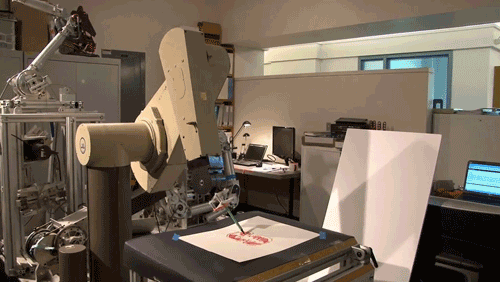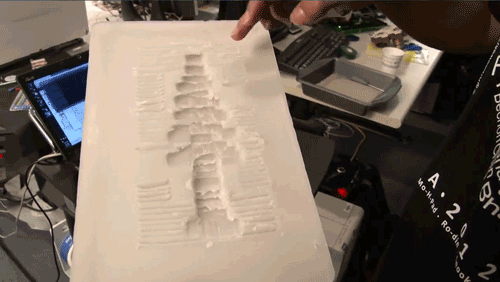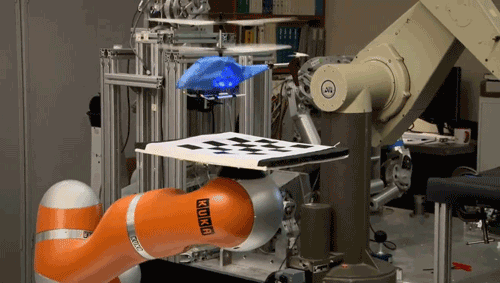Students at Stanford University show off experimental robots
Bots paint, play games, catch toy helicopters
Friends and classmates got together to cheer one another on as they put to show everything they learned in their recently concluded “Experimental Robotics” class at Stanford University.

Students started the class with only a fundamental understanding of robotics; by the end, they were able to create their own bot.
To mark the occasion, Professor Oussama Khatib handed out black t-shirts to the class’s participants that displayed in bold white letters a mash-up of all their names and the name of the course. It set the tone for a fun and thoroughly entertaining presentation that marked the conclusion of the spring quarter class, which saw enrollees enter with a basic understanding of robotics leave with the ability to design and build their very own robots.
“Every year students come with all of these wonderful ideas,” Khatib said. “They are so creative in conceiving a project that’s exciting, interactive, dynamic.”
Presentation
Two of the highlights were bots able to play games: one could play snooker — a variation of billiards — while another was taught how to play carrom — a game that pretty much combines billiards with shuffleboard.

Game-playing robots were a big hit with the classroom.
Students controlled the bots from a nearby keyboard, and every time a shot was made — or carom deemed successful — cheers erupted all around the room.
“We saw robots are almost better than humans because they can do precise calculations of the direction, the impact location,” Khatib said.
There were also a couple of robots capable of creating art, with one sketching out the famed Stanford logo, while another etched a relief of the symbol into wax.

Two teams created robots capable of sketching and etching the Stanford logo; in addition to the photo at the beginning of the article is this one, created from wax
Also highlighted was a mobile helipad entirely controlled by a robot. The team’s goal was to try and create a robot that could bring a helipad to a remote-controlled helicopter. Some of the challenges put in place for this particular bot: the speed that the helicopter came in for the landing, how steady the helicopter was flying, and the position it needed to be in so that the robot could “catch” it.

Stanford students created a robot that tries to catch a remote controlled helicopter.
Video
See all of the robots in action for yourself:
Story via: Stanford.edu ■
Advertisement
Learn more about Electronic Products Magazine





